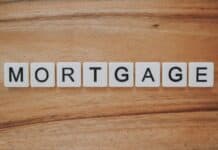Getting an unsecured loan such as a line of credit, student loan or personal loan comes with specific regulations and factors that will offer you peace of mind. However, most people do not understand what will happen if they stop paying the loan back.
 The main idea is that unsecured loans depend on your written promise that you will return the money. When it comes to secured loans, the rules are simple. You place a specific belonging you bought as collateral, meaning you must pay the amount on time. If you wish to learn more about the National Private Lender Association, you can do it by clicking here for more info.
The main idea is that unsecured loans depend on your written promise that you will return the money. When it comes to secured loans, the rules are simple. You place a specific belonging you bought as collateral, meaning you must pay the amount on time. If you wish to learn more about the National Private Lender Association, you can do it by clicking here for more info.
In case you stop paying, you will enter a foreclosure or seizing process, where the lender will take your home or car to return the money you have taken. Therefore, you will use collateral as a guarantee that you will repay the loan.
However, unsecured loans feature a written notice as a guarantee, while lenders will consider your history of on-time payments, past debts, and credit score when determining whether you should get the amount or not. Besides, defaulting on an unsecured loan comes with serious consequences that will affect your score.
However, they will not seize your home or car, but you may end up sparing a percentage of your monthly income, and other issues too. We will present you a few things you should remember when deciding to default on an unsecured loan, including how you deal with the process.
Things to Know About Unsecured Loans
As the name suggests, getting an unsecured loan means you do not have to use an asset as collateral such as a home, savings account, or vehicle. Instead, a lending institution will rely on your creditworthiness as the way to deal with the potential risk of providing you with a specific amount. Therefore, you will need a significant credit score to qualify.
Generally, unsecured loans are lower than secured ones, while you can choose either a line of credit or personal loans. Both options feature specific repayment regulations you must follow. The most common unsecured option is personal loans, which come with fixed monthly installments, while you can borrow between a thousand and fifty thousand dollars.

What Happens if You Default an Unsecured Loan?
You should know that the delinquency is different from a default. A loan will become delinquent debt the first time you miss a single payment on time. However, lenders will still work with you and allow you to repay everything. As a result, you will get a chance to make partial payments too, which is vital to remember.
However, the loan enters a default when you stop paying it in months, depending on the lender you get. You should know that most lenders will offer you a grace period before reporting that you made a late payment to major credit bureaus.
Still, if you continue to avoid the payment, you should expect penalties and late fees, wage garnishments, and a credit score drop. For instance, a single missed payment can reduce the score by up to eighty points.
After a while, your delinquent account will go to a collection agency, which will force you to return the money plus their services. A collection agency can easily create severe issues to your credit score, meaning their existence will remain on your score for the next seven years. You should understand the defaulting timeline after you stop paying the unsecured loan:
- 0 – 30 Days – Most lenders will offer you a grace period where you can make a minimum payment without penalties and alarming credit bureau.
- 30 – 60 Days – Possible penalties and late fees such as high interest rates will accrue the balance.
- 60 – 120 Days – The next step is for a lender to ask for the entire amount. They will flag your account by a collection department and move it to a default status. When it comes to the credit card account, the issuer will close it completely.
- 120 – 180 Days – A lender will sell the debt to a collection agency, meaning they will take legal action against you during this period. In some situations, you may get a settlement in the form of biweekly payments.
- 270 Days – When it comes to student loans, they will default when you reach this period, especially because they feature different approaches and options.
As soon as you default, the following things can happen:
- The process will stay on your report for the next seven years.
- The credit score will seriously drop.
- When it comes to federal student loans, you will notice that the money will be withheld from future Social Security benefits and tax refunds.
- You will not be able to qualify for a loan in the next decade.
- Court fees
- Lawsuits
- Wage garnishments
- Liens against your revenue
- Additional tax obligations
Defaulting on a P2P Loan
As soon as you default on a P2P or peer-to-peer loan, the investor who provided you with the relevant funds you wanted may walk away without money, which is why these platforms are specific about whom they wish to lend the money to.
Suppose you enter a point of defaulting. In that case, the lending platform will take a specific route as with other lenders who provide unsecured loans. For instance, P2P companies will report missed payments and defaults to a credit bureau. Besides, they will terminate the agreement and collect payments through an agency.

Tips for Avoiding Defaulting on an Unsecured Loan
Suppose you lose a job, which will reduce your chances of making the next payment. In that case, you should reach out to a lender as soon as possible. When you reach the lender before the issue affects you, the chances are high that you can create a payment plan that will fit your current situation and help you repay the amount promptly.
You can consider a few things after reworking the payment strategy, which will help you repay the debt without entering a default or causing your score to plummet.
- Reorganize Your Income – Reevaluating your spending habits and budget to fit your specific situation may be a challenging endeavor at first, but you should consider numerous factors and try to avoid buying non-essential things. The best rule is 50/30/20, which means you should use fifty percent towards your needs, thirty towards things you want, and twenty towards debt and savings.
Check out this website: besterefinansiering.no/hva-er-påleggstrekk/ to learn more about defaulting and how to handle the process.
- Debt Consolidation – Another option is to consolidate various credit card debts into a single lump sum you can use to repay and handle each month for lower monthly installments. Debt consolidation loans can handle multiple debts such as payday loans and credit cards, meaning you can repay them and streamline them into a single installment. That way, you can secure better terms and rates than beforehand.
- Debt Counseling – You may need someone who can support debt counseling and working out a budget. Since the debt counseling services come from non-profit organizations, you can avoid paying for the process. That way, you can ask for advice on how to create a better income structure to handle specific debt faster.
Things to Do After Defaulting
Although you have defaulted on a loan, that does not mean that it’s the end. Still, you should follow certain steps that will help you prevent severe consequences.
- Find an Attorney – If you have been sued by a lender or debt collector, the best option is to find a lawyer to offer you legal advice or representation. If you avoid responding to a lawsuit, the case will undergo default judgment in favor of a debt collector.
- Counseling – A debt collection agency can help you understand the further steps for defaulting on an unsecured debt. Therefore, you may file a bankruptcy, which may affect your overall score, but protect you against potential issues.
- Learn About Your Rights – It is vital to understand how to deal with debt collectors after they call you about a defaulted loan. Although the process can be intimidating, you should remember that you have rights under the FDCPA or Fair Debt Collection Practice Act. It means they can operate within the bounds of these regulations.
Final Word
We have mentioned above that the biggest difference between unsecured and secured loans is using collateral or lack of it to handle a loan. The lack of collateral means you will need a better score to qualify, while the overall amount will be lower and capped to a certain amount depending on your creditworthiness.
Besides, you will end up paying higher fees and rates, because the risk is higher with the unsecured debt than a secured one. It is as simple as that.




